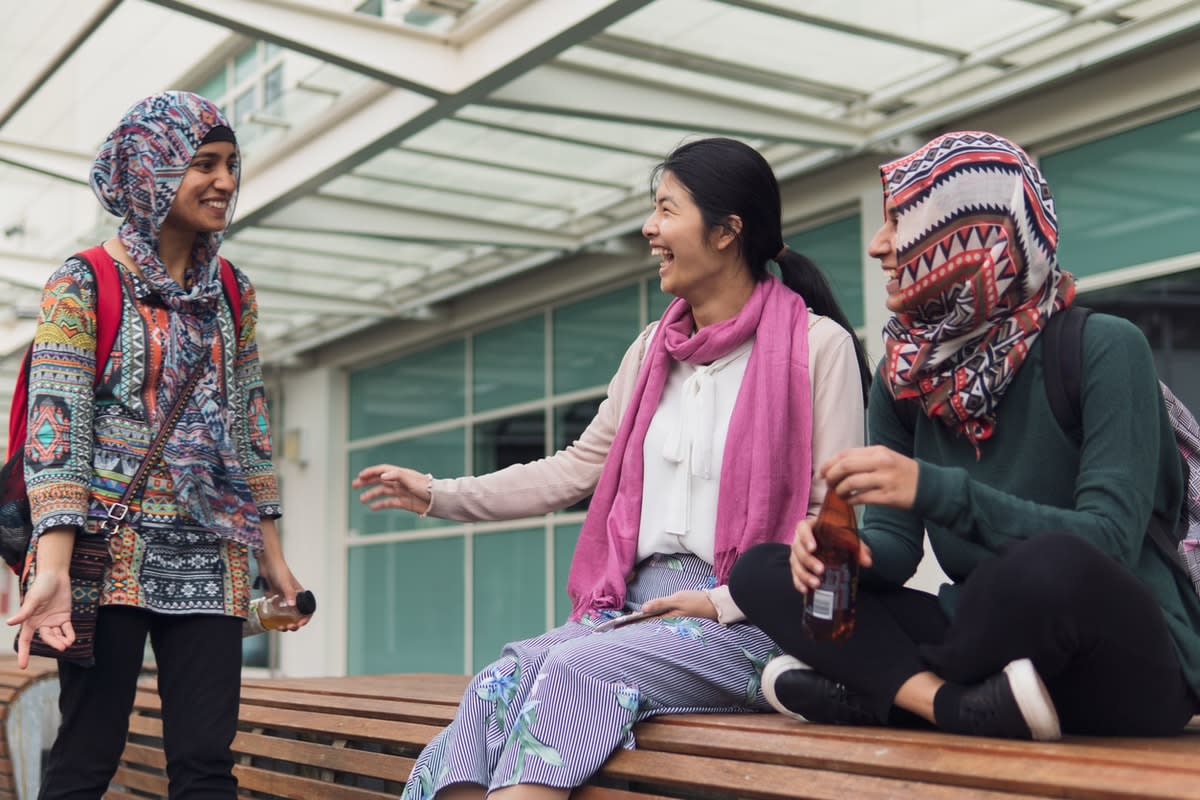
More than 5.3 million international students are furthering their education outside their home countries; the majority are non-Western students studying in Western countries.
There have been growing calls for the need to support international students in Western countries, including providing financial aid, creating safe environments, and respecting cultural diversity.
In education, Western educational institutions aim to achieve these goals by internationalising education to incorporate international students’ cultural and educational values in teaching and learning. However, Western academics and researchers have paid little attention to international students’ intellectual heritages, particularly those from marginalised cultural traditions (for example, Africa and Asia).
Although many internationalisation initiatives have been implemented in Western countries, international students are still largely seen as “inferior others” who need to be filled with Euro-American knowledge, or “complex others” who have their own identities but still need to assimilate in Western academic conventions.
New experiences in online teaching are clearly creating opportunities for educational ideologies and philosophies of non-Western systems to be recognised and applied by Western teachers and students.
Responding to recent problems in standards of literacy, numeracy, general knowledge and behaviour of students in many Western countries, researchers are increasingly calling for researchers in the Global North countries to pay more attention to the cultural and intellectual resources of Southern countries, as these intellectual heritages might offer alternative solutions to existing problems.
And, while little progress has been made in embedding non-Western ideologies and philosophies in current teaching and learning programs at Western institutions, somewhat ironically, COVID-19 is creating opportunities for true education internationalisation.
The possibilities of online teaching
Online learning has been widely discussed as an option that many countries’ institutions will embrace after COVID-19. After delivering intensive online teaching for the past couple of months, many academics have agreed that for successful online learning, teachers and students need to be engaged in explicit pedagogical approaches; without clear instructions, students could easily become lost.
Therefore, in online delivery, teaching practices widely utilised in Western classrooms – independent, critical, and inquiring – are increasingly being replaced by common practices in Asian classrooms, including “high scaffolding” and explicit teaching. This is being reinforced, and becoming a “must”, due to the enormous stresses students are currently facing.
More fundamentally, traditional Western educational principles such as Vygotskian that stress interactions and verbal discussion lead to learning, are being challenged by Confucian pedagogical principles that emphasise silence and cognition processing in learning.
New experiences in online teaching are clearly creating opportunities for educational ideologies and philosophies of non-Western systems to be recognised and applied by Western teachers and students.

Human values or scientific and technological advancements
The rise in deaths, shortages of medical services, and the enormous stresses people are experiencing globally have raised a fundamental question for both authorities and citizens – whether the wealth and development of a country should only be limited to political strengths, scientific and technological advancements, and outperformance of students in science and maths subjects?
Increasingly, human values such as loyalty, community, collaboration, unity, tolerance, kindness and respect are attracting attention in education. These values have been widely embedded in Confucian and Indian systems – in fact, morality, environment, national ideologies, and community respect are still compulsory subjects in many Asian educational programs, and have been clearly used to control COVID-19 in countries such as China and Vietnam.
Vietnam, in particular, has been widely praised for its COVID-19 strategy war (no deaths, and a small number of confirmed cases). Its success in controlling the outbreak largely resulted from values including morality, community respect, and people working with authorities.
Read more: Getting personal: Formulating employment success for international students
In their quest for swift technological and scientific advancements, Asian countries have overhauled their local education programs, and more students have undertaken technology/ science studies in Western countries. However, the pandemic gives pause as to how much they should revamp their traditional cultural and educational values.
Questions are also being asked of Western countries’ educational systems: Should the strength and wealth of a country be shown in technological and scientific advancements, the commercialisation of education, and the dominance of current Euro-American ideologies? Or is there the need to consider more social sciences and diverse perspectives in current teaching and learning programs?
What pedagogies to truly internationalise Western education?
To internationalise pedagogies and curricula, several forms of pedagogies have been developed, but are still largely absent in teaching and learning programs. It’s timely for Western institutions to consider the following forms:
- Funds of knowledge (Moll et al, 1992), which stresses the need for mainstream education to embed minority students’ prior knowledge.
- Pedagogies of intellectual equality (Singh, 2009, 2010), which claims academics should apply “ignorance pedagogies” so that international students could be motivated to look for, and utilise, their multilingual competence and theoretical tools in learning at Western institutions.
- Funds of pedagogy (Zipin, 2005), which supports the application of transferring remote students’ life knowledge in the elite curriculum.
- Hybrid pedagogies (Pham, 2015), which emphasises the deployment of culturally-appropriate pedagogies to add knowledge to the existing curriculum.
The international education sector of Australia, and many other Western countries, has been seriously impacted by the pandemic. The promotion of these pedagogies to international students will convey respect and appreciation on the part of Western countries, in turn contributing to the recovery from the current economic losses.
The current global suffering is forcing us to face a fundamental question: To make a better world, should South learn from North, or should both North and South learn from and support each other?





